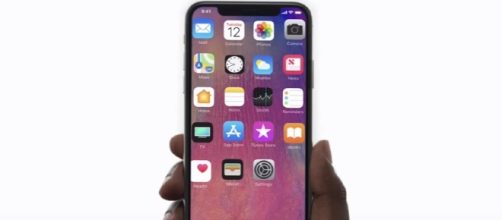If you keep up with tech news in any capacity, you already know everything there is to know about the new iPhone X: it's expensive, has no home button, and you hate that you love it or you love that you hate it. While the iPhone X release will undoubtedly be a success and make quite a few people rich on eBay in the process, it still doesn't have what it takes to capture new users or regain the ones they've already lost.
iPhone X features are only new to iPhone users
"New" features such as wireless charging, bezel-less design, OLED display technology, and facial unlocking* have been around on Android phones for over four years in some cases.
To clarify the point on facial unlocking, I am referring to the functional iris scanner found first on the unfortunate samsung galaxy Note 7, not the versions that could be tricked with photographs. If you were thinking of buying the new iPhone for the camera, the LG V30 offers much greater controls and meaningful features for any photographers and filmmakers. If you love the new display, Samsung has been making brilliant OLED displays that critics have fawned over since the 2012 Samsung Galaxy S II and their current offerings are the best on the market. However, if it's just the bezel-less design that you are after, there are many great flagship offerings out there from the likes of LG, Essential, and Xiaomi.
LG is even coming out with a budget version of the LG G6 which will be coming to the US soon and features the same, "Full Vision" display for under $400.
Key features are still missing
One of the biggest things that keep people in the Google mobile ecosystem is that Android gives users greater control over their device. Android phones almost have all the functionality of a laptop or desktop mainly due to the excellent file and download manager built into the phone. iPhones still lack the ability to download certain files from the internet which is a deal-breaker for many people who need to be able to access files from a variety of sources. Apple also continues to use NFC for mobile payments which limits the terminals you can use Apple Pay.
In comparison, Samsung Pay with the far more widely accepted MST technology works anywhere you can swipe a card and you even get rewards for doing so. Finally, a lack of home screen customizations, namely widgets, are still missing. Apple continues to have a chokehold on usability in favor of optimizing the user experience to make iOS very consistent across devices.
What would it take to make the switch?
Everyone has had a different history when it comes to smartphones, tablets, wearables, and computers which will all factor into the next device they purchase. I currently use a Samsung Galaxy S8 with a Samsung Gear S3 Classic smartwatch. For me, it would not make sense to switch to iPhone because I have spent time importing my life to Gmail, Google Calendar, Google Passwords, and Samsung Pay.
The similarities between me and other consumers are that by this point in time, we've already invested our lives into various services and companies that are device exclusive. This is the key factor that will keep most avid mobile users from switching operating systems. I believe that my experience in taking the leap of faith into the Samsung ecosystem with their wearable, health app, and mobile payment option is what many Apple users have already done which is why they won't ever switch over to Android. We've come to the point in the smartphone industry where things have begun to plateau; not for a lack of technological advancements, but because phones are finally smart enough to handle everything we need them to.


